Jaya Bhatt and Ruchi Tripathi, designers and storytellers, founded Indigene as a conscious clothing label in 2011 with a passion for traditional textiles and handcrafted techniques. Rooted in sustainable design and working closely with artisans and communities, the label makes a stylish statement, marrying ease with comfort. Jaya talks to us about what industry buzzwords - ‘conscious’ and ‘artisanal’ - means to them, the label’s upcoming collection and more in this illuminating interview.
The origins of Indigene...
Both Ruchi and I are textile design graduates from NIFT, Delhi. At the institute we were introduced to craft and textile techniques, an instant attraction for us. We both chose to work with grassroot craft organisations and took up independent projects with clusters across regions. Having worked for a while with several artisans and communities, we realised that there was much more we wanted to create along with these immensely talented craftspeople. We could explore, experiment and co-create. The idea was to bring in a blend of different craft elements in a product and give it our own personal touch.
Indigene originates from indigenous, which means native or from the roots and because we strongly believe in the handmade. In our country, traditional techniques, artisans and craft cultures are rooted in particular geographical regions with their own history and social narrative. We wanted a name that could resonate with all of these and after much contemplation and several rounds of discussions with friends, we felt that ‘indigene’ perfectly captured this essence. Indigene for us is a global word: modern yet rooted, carrying a hint of its meaning.
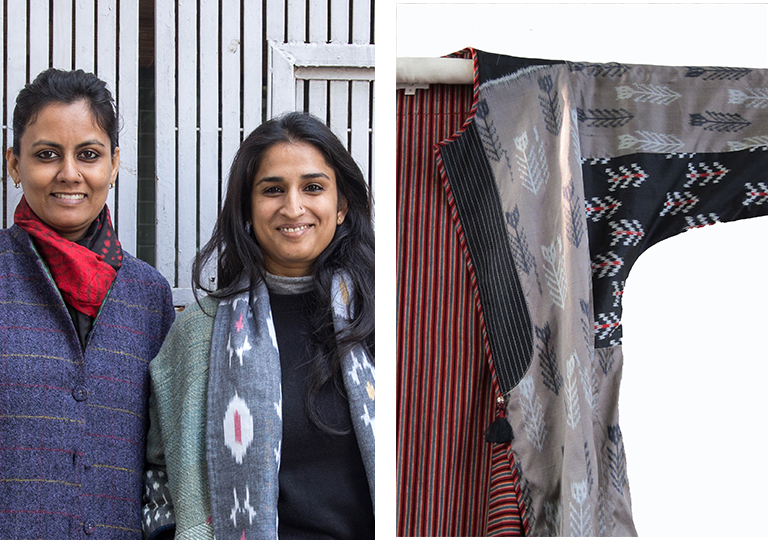
A ‘conscious label’...
We are conscious about how we operate; Indigene’s design philosophy celebrates timeless fashion not driven by trends but by traditional, sustainable production processes. Quality is vital to us - the fabric, fit and finish - is crucial to the Indigene experience. An organically growing label, Indigene works closely with skilled artisans and local communities for production. We believe in fair, deep-rooted partnerships, nurtured by constant learning and training.
Indigene is a close-knit family of artisan and karigars. Sustainability for us is about long-term relationships. Indigene continues to work strongly with its first set of partners, artisans and needle-workers. Even as we expand our partnerships, the older ties keep getting stronger. As a label, we are proud of its long yet ethical supply chain and the many hands involved in producing each garment.
Handcrafting is an essential part of Indigene. All crafts and techniques have a geographical and cultural relevance, belonging to a certain area and community. Traditional crafts each have a story to tell and a reason for their existence. Indigene believes in keeping the essence of this story alive. We work with artisans in their own regions and homes, their ‘comfort zone’— a small effort to keep craft out of urban factories and karkhanas, and in their original spaces.
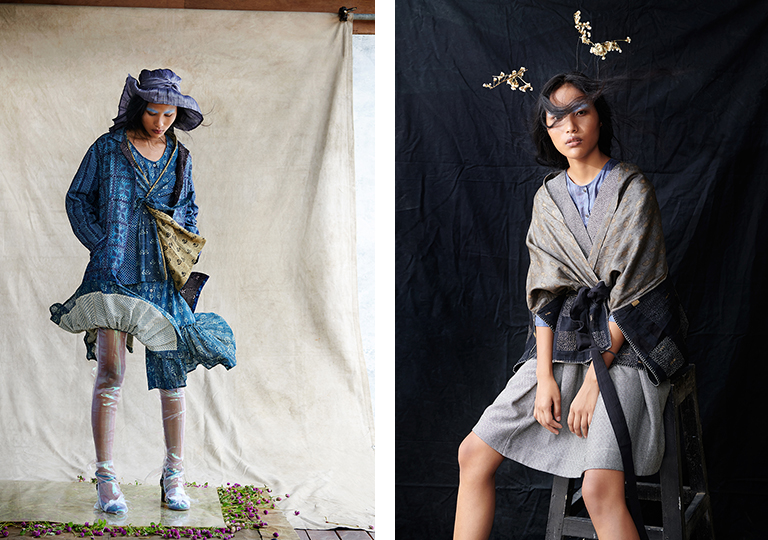
Identifying as an ‘artisanal’ label...
“Artisanal” is a word more aptly used for handmade food or drinks, but we use the adjective for Indigene products because they are made by hand and each product is an amalgamation of different hand techniques, inspiration and skill. These are artisan made products in small quantities and have a unique identity of the craft, region and the craft person making it.
Indigene clothing is one that speaks of and for artisans, their skills and challenges; of consumers who know how it feels to pay it forward. It is all about ease and comfort and about celebrating the essence of the maker.
Artists and communities that help bring alive Indigene’s vision...
Indigene takes great pride in its family of highly skilled artisans involved at several stages of creation. Following a long yet ethical supply chain, it strives to keep intact the real meaning of ‘handmade by artisans’ and ‘ethically crafted’. Unlike any factory set up, each of Indigene's garment goes through several hands and geographies. The process is challenging and requires a different level of rapport and coordination between the designer and artisan.
As trained textile designers, our area of specialisation is textile itself. Some of the techniques that we work with include ajrakh from the Kutch region practiced by the Khatri community and fine Bengal cotton and khadi silk. We have recently collaborated with ikat weavers for a new collection. Our embroideries are a contemporary version of the traditional sujni embroidery from the Bihar/Jharkhand region and is an integral part of an Indigene garment. This is done by a small group of migrant women from these regions, who have now settled in Delhi in search of livelihood opportunities.
These women have traditional knowledge of sujni embroidery and we work with them on developing their existing skills and new concepts, innovating with every collection. In addition to the above, Indigene garments involve very fine detailing and trims such as buttons, tassels and doris, which is all hand done by these women as well. A set of our tailors are also women who have been trained in the skill of stitching, they have been associated with Indigene for the past 4 years. The women’s stitching group is adept at patchworking which is part of our “Gudri” project where we recycle our fabric wastage into fresh base fabrics, which are further converted into garments.
Indigene further involves itself in a continued process of upgrading skills and designs with its artisans through design processes and one-on-one interaction, constantly striving towards sustaining the artisans and partners associated with it.
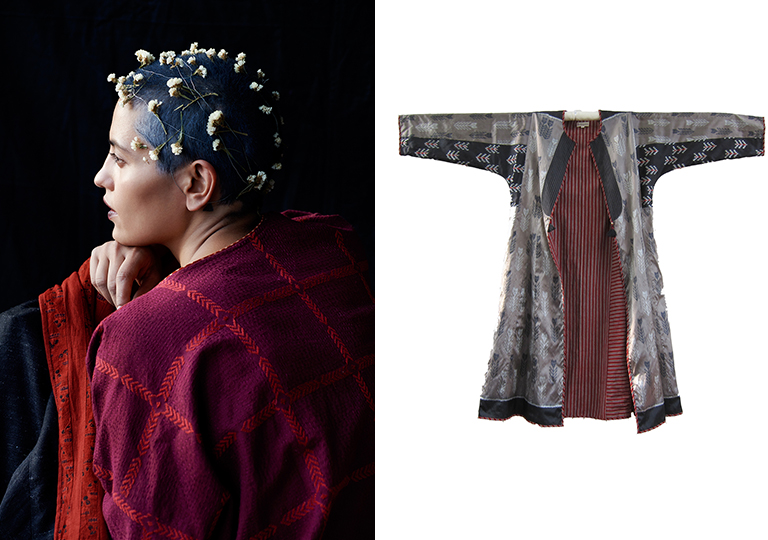
Upcoming collection…
Indigene’s upcoming collection is centered on Ikat textiles (double ikat in cottons and single ikat in silk). A capsule collection was showcased at the FW18 Lakme Fashion Week held in Mumbai. For this collection, we have drawn our inspiration from the elaborate geometric motifs of counted thread embroideries done by women of Syria and Palestine and the Telia Rumal, which is seldom found now. The process of making these fine geometric forms in double and single ikat technique is tedious and requires a master craftsmen’s precision during the pre-loom and on loom processes. The garment silhouettes are inspired by the elaborate chappans, kurtas and khalats, worn by men and women in Central Asia with handmade tassel detailing, combined with slim silk pants and wrap-over shalwars to complete the look. We are also constantly working on recycling our production wastage and will be taking the concept ahead every season to further innovate our ‘Gudri’ line.
Find Indigene online and on Instagram
.png)
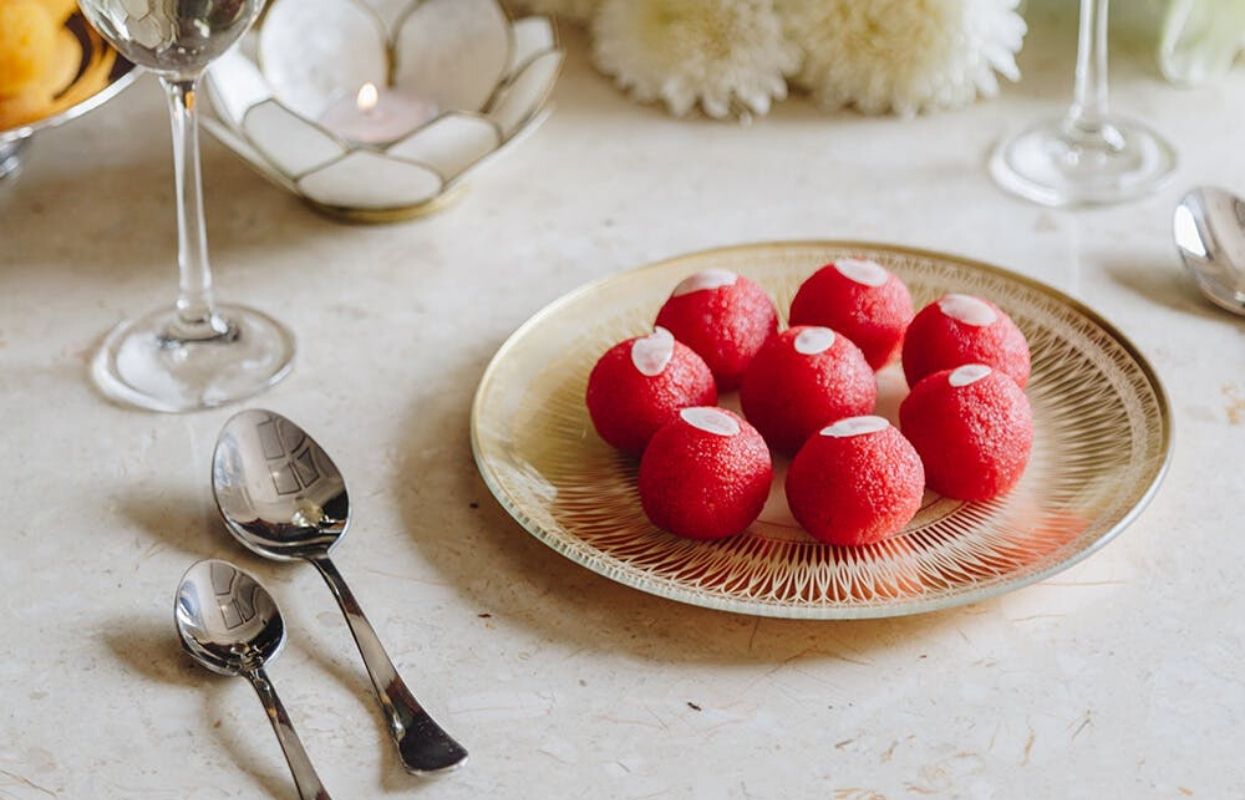
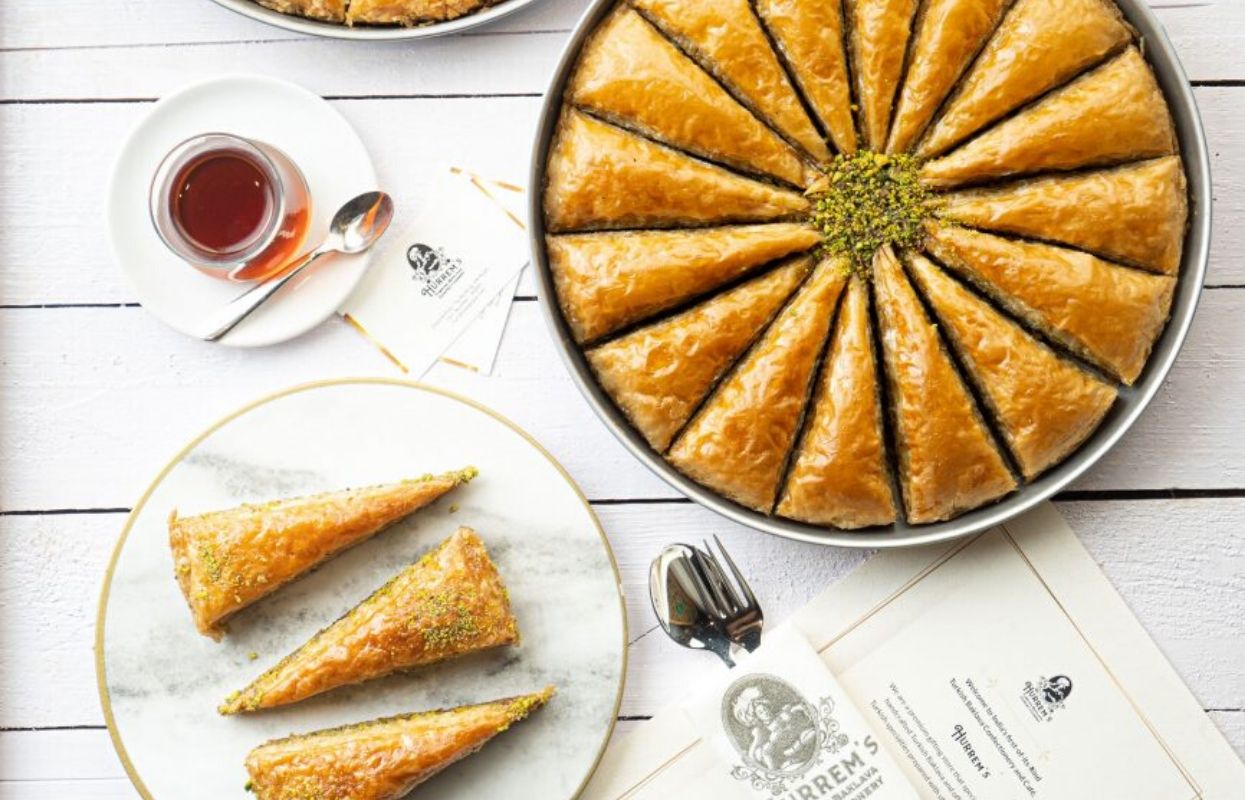
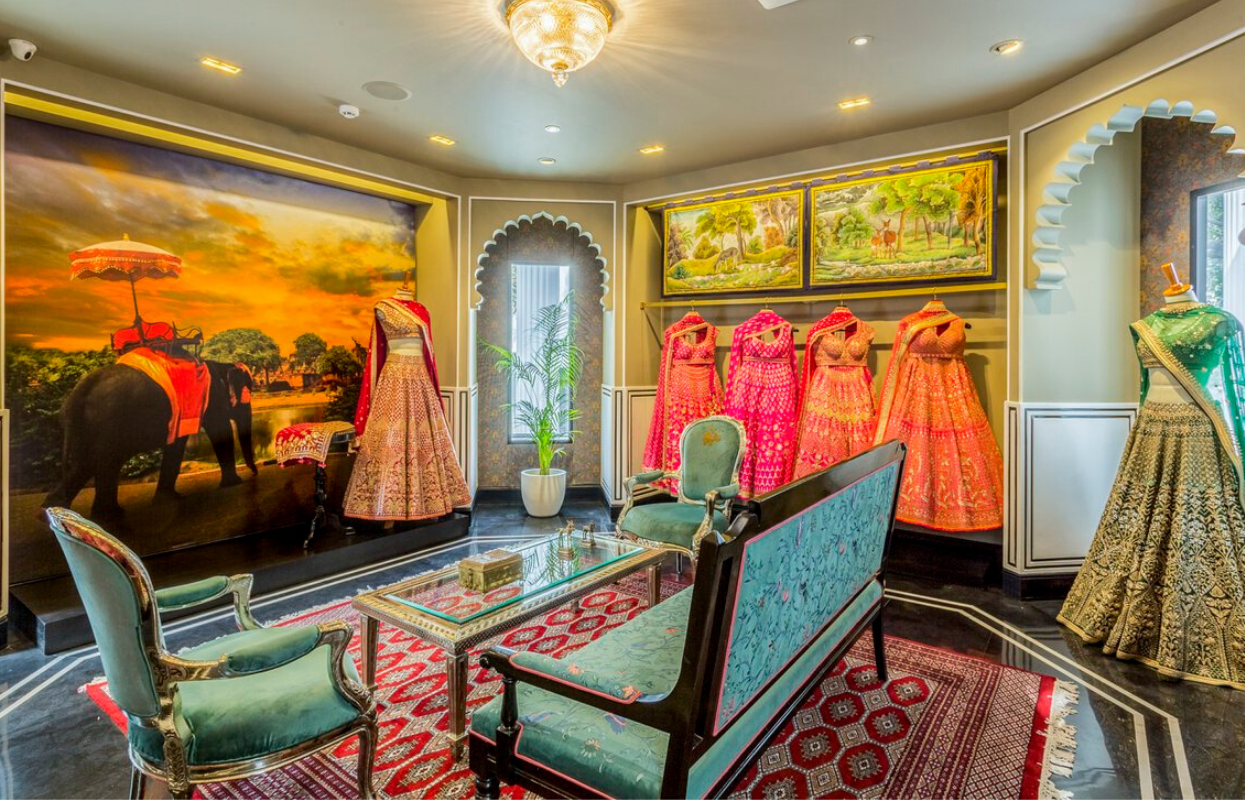







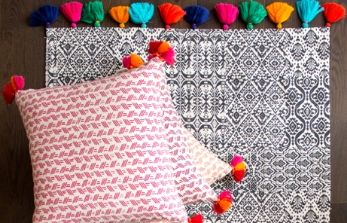

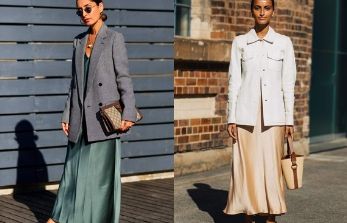

.jpg)
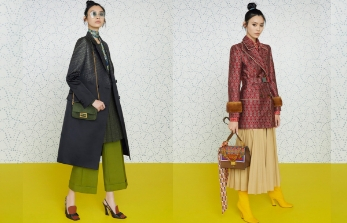
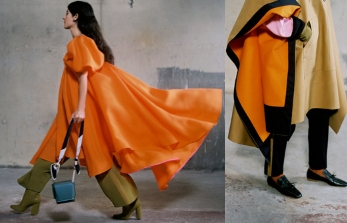

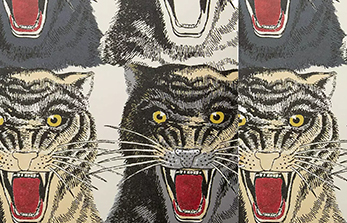







Comments